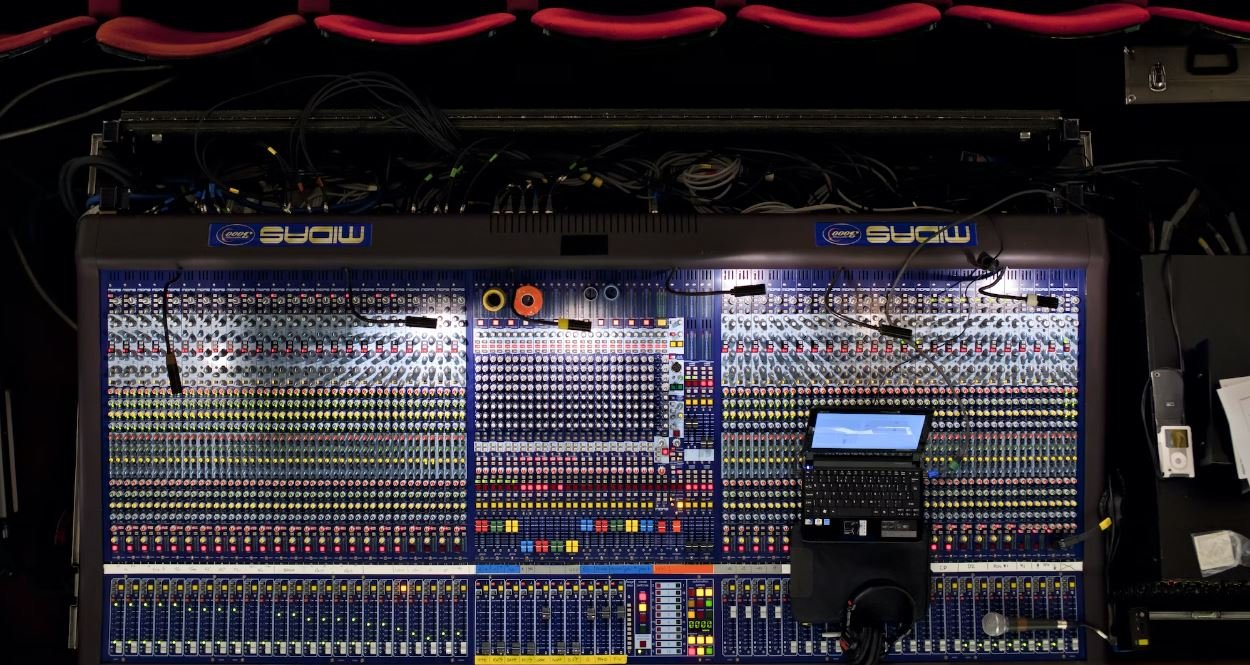What Is AI Application?
Artificial Intelligence (AI) has become increasingly prevalent in our society, with applications spanning various industries and sectors. AI application refers to the use of AI technologies to perform specific tasks or solve particular problems. These applications leverage machine learning algorithms and deep learning networks to analyze and interpret data, enabling systems to make intelligent decisions and provide valuable insights.
Key Takeaways:
- AI application involves using AI technologies to perform specific tasks or solve problems.
- Machine learning algorithms and deep learning networks are key components of AI applications.
- AI systems analyze and interpret data to make intelligent decisions and provide valuable insights.
**AI application covers a broad range of areas, including healthcare, finance, transportation, customer service, and more. In healthcare, AI can be used to analyze medical imaging data and detect patterns that human doctors might miss. In finance, AI applications can identify fraudulent transactions or assess investment opportunities. Transportation can benefit from AI applications by optimizing routes and reducing traffic congestion. AI-powered chatbots enhance customer service by providing instant responses and personalized recommendations. The possibilities are vast and continually expanding.**
AI applications utilize a variety of techniques to achieve their goals. Machine learning, a subset of AI, is often used to develop algorithms that automatically improve their performance through experience. Deep learning, which is a form of machine learning, employs artificial neural networks inspired by the structure of the human brain to process and understand complex data. Natural Language Processing (NLP) is another essential technique that enables AI systems to understand and interact with human language, enabling chatbots, voice assistants, and language translation services to function effectively. These techniques, combined with data analytics and optimization algorithms, allow AI applications to provide valuable insights and actionable recommendations.
*AI applications have the potential to revolutionize a wide range of industries. For example, AI is revolutionizing the healthcare sector by enabling early diagnosis and personalized treatment plans. In the finance industry, AI applications facilitate fraud detection, algorithmic trading, and risk assessment. Autonomous vehicles powered by AI technology are set to reshape the transportation industry. The possibilities are limitless, and AI is transforming the way we live and work.*
AI Application Examples:
- Virtual personal assistants like Siri, Alexa, and Google Assistant.
- Recommendation systems used in e-commerce and online streaming platforms.
- Image and voice recognition software.
| Industry | AI Application |
|---|---|
| Healthcare | Medical image analysis for diagnosis |
| Finance | Fraud detection and algorithmic trading |
| Transportation | Autonomous vehicles and traffic optimization |
*As AI applications continue to advance, ethical considerations are becoming increasingly important. It is crucial to ensure that AI systems are built with transparency, fairness, and accountability in mind. Additionally, AI applications should also prioritize data privacy and cybersecurity to protect sensitive information.*
Conclusion:
AI application is a rapidly growing field with significant potential for transforming various industries. By leveraging machine learning, deep learning, and other AI techniques, applications can analyze and interpret data to make intelligent decisions and provide valuable insights. As AI continues to advance, it is essential to address ethical considerations and ensure the responsible development and deployment of AI systems.

Common Misconceptions
Misconception 1: AI is Magical and Can Do Anything
One common misconception about AI applications is that people believe AI is a magical technology that can do anything. While AI has made remarkable advancements in the past few years, it still has limitations and cannot perform tasks beyond its programming and training.
- AI is not capable of experiencing emotions or having consciousness.
- AI cannot replace human creativity and intuition in certain complex tasks.
- AI is not infallible and can make errors or biases based on inaccurate or insufficient data.
Misconception 2: AI Will Replace Humans in Every Industry
Another misconception is that AI will replace humans in every industry, leading to widespread job loss. While it’s true that AI can automate certain repetitive and mundane tasks, it is designed to work alongside humans, augmenting their capabilities rather than replacing them entirely.
- AI can enhance efficiency and productivity by automating repetitive tasks, allowing humans to focus on higher-level activities.
- AI often requires human oversight and intervention to make informed decisions and handle complex situations.
- AI can create new job opportunities by necessitating the development and maintenance of AI systems.
Misconception 3: AI Is Futuristic and Not Yet Practical
Many people assume that AI is a futuristic concept that has yet to be practically implemented in the real world. However, AI applications are already in use in various industries and have proven to be highly beneficial in solving complex problems and improving efficiency.
- AI is widely used in healthcare for diagnosis, drug discovery, and personalized treatment plans.
- AI is used in autonomous vehicles and drones to improve navigation and safety.
- AI is employed in customer service chatbots to provide instant assistance and support.
Misconception 4: AI Is Only Relevant for Tech Companies
Many people believe that AI is only relevant for tech companies and has limited applications in other industries. In reality, AI has the potential to transform and benefit multiple sectors, including healthcare, finance, agriculture, transportation, and more.
- AI can revolutionize agriculture by optimizing crop yield and reducing resource wastage.
- AI is used in finance for fraud detection, risk assessment, and algorithmic trading.
- AI can significantly improve healthcare outcomes by analyzing patient data and assisting in medical procedures.
Misconception 5: AI Will Take Over the World and Pose a Threat
One of the most prevalent misconceptions is the fear that AI will surpass human intelligence and pose a threat to humanity. While AI does have the potential for misuse, the responsible development and regulation of AI systems can mitigate any negative consequences.
- AI is a tool created and controlled by humans, subject to ethical considerations and regulatory frameworks.
- AI development emphasizes safety, transparency, and accountability to prevent unintended harms.
- AI researchers actively work toward creating AI that aligns with human values and benefits society.

Exploring AI in Healthcare
The table below provides an overview of the various applications of AI in the healthcare industry. From assisting in diagnosis to drug discovery, AI is revolutionizing the way we approach medical care.
AI in Transportation: Revolutionizing Mobility
The following table highlights the advancements made by AI in the transportation sector. From autonomous vehicles to traffic management, AI technologies are reshaping transportation as we know it.
AI in Finance: Transforming the Financial Landscape
In the financial sector, AI is revolutionizing how businesses operate and make decisions. The table below highlights the different applications of AI in the finance industry, from fraud detection to algorithmic trading.
AI in Agriculture: Cultivating Innovation
Agriculture has also embraced AI to enhance productivity and sustainability. The table below demonstrates how AI is revolutionizing farming practices, including crop monitoring and precision agriculture.
AI in Education: Empowering Learning
The education sector is adopting AI to enhance personalized learning and improve educational outcomes. The table below showcases the various applications of AI in education, including intelligent tutoring systems and automated grading.
AI in Retail: Transforming Customer Experience
Retailers are using AI to provide personalized shopping experiences and streamline operations. The table below highlights the different applications of AI in retail, from chatbots for customer service to inventory management.
AI in Entertainment: Unleashing Creativity
The entertainment industry has embraced AI to enhance artistic creation, visual effects, and audience engagement. The table below explores the numerous applications of AI in entertainment, including virtual reality and AI-generated music.
AI in Energy: Revolutionizing Power
AI is reshaping the energy sector by optimizing power generation, distribution, and consumption. The table below illustrates how AI is transforming the energy industry, including smart grids and predictive maintenance.
AI in Manufacturing: Innovating Industry
The manufacturing sector has integrated AI into various aspects of the production process, leading to increased efficiency and productivity. The table below showcases the applications of AI in manufacturing, such as robotic automation and quality control.
AI in Sports: Enhancing Performance
Sports teams and athletes leverage AI to analyze performance data and improve training strategies. The table below explores the applications of AI in sports, including athlete tracking systems and injury prediction.
In today’s rapidly evolving world, the applications of artificial intelligence are seemingly boundless. From transforming healthcare and transportation to revolutionizing finance and entertainment, AI is revolutionizing multiple industries. This article has explored various tables demonstrating the real-world impact of AI in different sectors. By harnessing the power of AI, businesses and society as a whole can unlock new possibilities and drive innovation. As we continue to embrace AI, it is important to explore ethical considerations and ensure responsible development to fully harness its potential.
Frequently Asked Questions
What is AI application?
What types of applications can utilize AI?
AI can be used in various applications such as autonomous vehicles, virtual assistants, healthcare, finance, education, and many more.
How does AI application benefit businesses?
What are the advantages of implementing AI in business applications?
AI applications can enhance efficiency, automate repetitive tasks, improve decision-making processes, provide personalized customer experiences, and optimize resource management, leading to improved productivity and competitiveness.
What are the challenges in developing AI applications?
What are some common challenges faced during AI application development?
Common challenges include obtaining quality and diverse datasets, ensuring algorithmic fairness and transparency, managing ethical concerns, dealing with limitations of current AI models, and addressing legal and regulatory issues.
How can AI applications affect employment?
What impact can AI applications have on the job market?
While AI applications can automate certain tasks, they also create new jobs that require human expertise in managing and maintaining AI systems. The overall impact on employment is complex and depends on factors like industry, job type, and readiness to adapt to emerging technologies.
What are the ethical considerations in AI application development?
What ethical concerns should be addressed during AI application development?
Ethical considerations include issues of bias and fairness in AI algorithms, privacy and data protection, transparency and explainability, accountability for AI decisions, and potential societal impact such as job displacement or infringement of human rights.
Are there any risks associated with AI applications?
What risks should be considered while deploying AI applications?
Risks include unreliable or biased outcomes, potential for malicious use or hacking of AI systems, dependence on AI in critical decision-making, a lack of human control and oversight, and unintended consequences that may arise from AI application deployment.
How can AI applications be regulated?
What measures are in place to regulate AI applications?
Regulation efforts include the establishment of ethical guidelines and frameworks, development of industry standards, creation of legal and policy frameworks, and ongoing collaboration between governments, organizations, and experts to address the challenges and potential risks of AI applications.
How can AI applications enhance healthcare?
In what ways can AI applications improve healthcare?
AI applications in healthcare can assist in diagnosing diseases, predicting patient outcomes, optimizing treatment plans, analyzing medical images, improving telemedicine services, and enabling personalized medicine, leading to more efficient and accurate healthcare delivery.
What skills are required for developing AI applications?
What are the essential skills for AI application development?
Key skills include proficiency in programming languages such as Python, knowledge of machine learning algorithms and techniques, data analytics and statistical analysis, problem-solving abilities, and an understanding of the domain where the AI application will be deployed.
Can AI applications replace human intelligence?
Is AI capable of completely replacing human intelligence?
While AI can perform specific tasks at a high level of proficiency, it cannot fully replicate general human intelligence which involves a wide range of cognitive abilities such as creativity, empathy, complex decision-making, and a deep understanding of social and emotional contexts.





